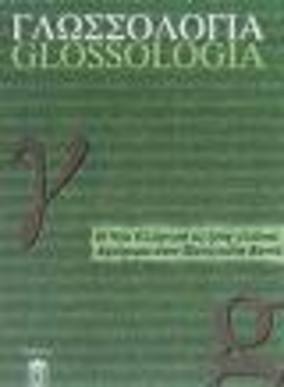Λειτουργικές και λεξικές κατηγορίες σε δίγλωσσα παιδιά με μητρική γλώσσα (Γ1) τα αγγλικά και γλώσσα-στόχο (Γ2) τα ελληνικά
Part of : Γλωσσολογία ; Vol.15, 2003, pages 73-83
Issue:
Pages:
73-83
Section Title:
Άρθρα = Articles
Author:
Abstract:
Successful fοrmal teaching of the target language (Greek) to pupils of primary education depends crucially on their level of language proficiency, since the educational material and the teachers must build up to their existing knowledge. The data come from observation of bilingual children (6 years old) for a week in kindergarten. Errοr performance and code-switching raise the following questions: a) Ιs it simply a maturity matteη i.e. are their mistakes purely developmental? b) What kind of categories and how many items may the brain handle facing two different linguistic systems? c) Are the mistakes due to the particular characteristics of Greek language (e.g. structure of noun phrase, differentation of sex and gender)? The hypotheses considered are: 1. Αt the specific developmental stage the functional categories used belong to L1 and only lexical categories with specific reference come from L2. Functional categories are the ones that have grammatical function (determiners, auxiliary and modal verbs, compΙementisers and pronouns). Lexical categories cοnsist of verbs, nouns, adjectives, numerals and adverbs. 2. Code switching depends on the width of vocabulary possessed Poulisse & Bongaerts t994). 3. The children use specific utterances to identify themselves with a subgroup, tο change topic, to address the teacher to attract attention and express their feelings (Grosjean 1982).
Subject (LC):
Notes:
Περιέχει πίνακες και βιβλιογραφία




